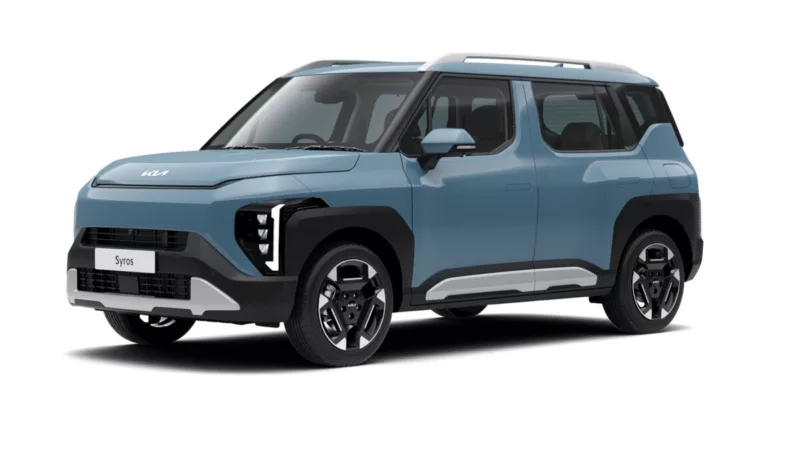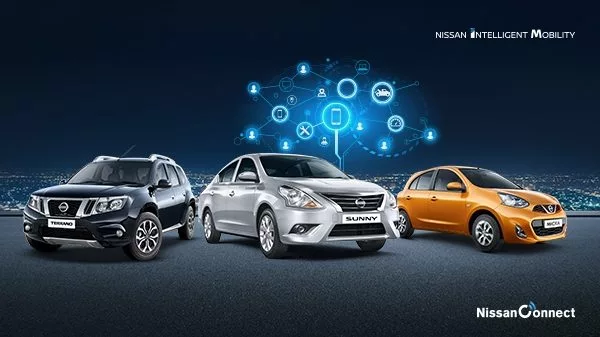The term ‘Safety’ is inextricably linked to every machine in the world. Safety features of an automobile are not as visible as other more attractive features are. Still, they play a major role in the success of any vehicle as no one likes to buy an unsafe machine. These days people are more concerned about their car safety than ever, as they should be. In the past couple of decades, the auto industry has shown significant advancement in safety metrics and features of automobiles for their passengers as well as pedestrians.
Moreover, these days car safety examinations such as the new car assessment program (NCAP) rate vehicles by testing them on multiple safety parameters. The safety features available today could be segregated into two types, active safety features and passive safety features. Here we’ll be talking about the active safety features.
What are Active Safety Features?
Active safety features mitigate the possibility of accidents via warning the driver or assisting him in controlling the vehicle. Various active safety features are integrated into the cars available today, let’s go through them, one by one.
Types of Active Safety Features
Anti-lock Braking System (ABS)
ABS prevents the wheels of a vehicle from locking when brakes are applied. If the wheels lock when the driver applies brakes, it can cause damage in two ways. One, the sudden stopping movement could damage brakes and many other components of the vehicle, and the sudden change of momentum could harm the passengers as well. Second, the suddenly locked wheel could make the vehicle skid, if the traction between the tyres and the road is less than required. ABS manages the force applied by the driver on the brake pedal in accordance with the tractive contact with the surface and doesn’t let the wheels lock.
Electronic Stability Control (ESC)
ESC is a computerized technology that detects the traction changes between the vehicle and road, it automatically applies brakes to assist the steering process. This happens when the driver loses control of steering. While automatically applying brakes, each wheel is supplied with the braking force it requires to prevent the vehicle from skidding. Some ESCs also reduce the power supply from the engine till the control of the vehicle is regained.
Adaptive Cruise Control
Adaptive Cruise Control is a sensor-based system that reduces and increases the speed of the vehicle within a specified range, to keep it at a safe distance from other vehicles on the road.
Tyre Pressure Monitoring System (TPMS)
Tyre pressure monitoring system is an electronically installed system that detects the air pressure inside the tyres of the vehicle on a real-time basis. The real-time tyre pressure information is transferred to the driver via a gauge, pictogram display, or any warning light.
Lane Departure Warning
The lane departure warning system warns the driver if the vehicle starts moving out of its lane. This feature comes in handy mainly on city roads and highways and prevents collision with vehicles in other lanes.
Head-Up Display (HUD)
A head-up display is a small transparent glass panel that is fixed on the dashboard with a comfortable eyeshot of the driver. HUD displays all the important information to the driver without requiring him to divert from his viewpoint. The information displayed usually includes the car’s speed and navigation, however, HUD could be customized to add several others.
Night Vision System (NVS)
The night vision system provides information of the area beyond the reach of headlights. This system uses the arrangement of thermographic cameras, head-up display, infrared rays, and several other technologies to gauge the information.
Blind Spot Detection
![]()
There are many blind spots for the driver as his vision outside the vehicle is hampered by window pillars, headrests, other passengers, and other objects. The blind spot detection technology uses the sensors mounted on the side mirrors or rear bumper to detect vehicles in other lanes and the car’s distance from them, and whenever any unsafe movement is detected, it informs the driver via an audio or visual warning.
Driver Monitoring or Drive Drowsiness Detection
The driver monitor system detects the attentiveness of the driver. The process is done by a Closed-Circuit camera mounted on the steering. The camera tracks the condition of the driver’s eyes through infrared light-emitting diode (LED) detectors. If the driver feels drowsy, it gets detected by the camera, and the system flashes lights or warns via a high-pitched beep sound.
Road Sign Recognition
Road sign recognition keeps the driver notified of the road signs and the enforced restrictions on an ongoing basis. These include the regular road signs and the speed limits permitted.
Autonomous Emergency Braking
An autonomous emergency braking system decelerates the vehicle and applies the brakes automatically when it detects a potential collision and there is no or slow action from the driver. The system detects a potential collision with the help of sensors, cameras, GPS, and lasers.

Doubtlessly, safety level holds utter importance for any vehicle and when people commute in vehicles with good and proven safety features, there is a distinct peace of mind that can’t be measured. Furthermore, In India, roads are filled with cars and the necessity of safety features is relatively higher than in most other countries. Automakers are persistently bettering the safety features and developing new ones to enhance the safety level and relief of the people buying their cars. Moreover, the progress of such endeavours is pretty evident in the modern age cars and they are safer than ever. Hopefully, the above-mentioned information will edify you greatly.
FAQs
What are active and passive safety features?
Active safety features are the ones that mitigate the chances of accidents and passive safety features are the ones that mitigate the damage caused by accidents.
Which Indian automakers make the safest cars?
Based on the statistics, Mahindra and Tata make the safest cars.
Which are the safest cars in India?
The safest cars in India are Tata Nexon, Tata Tiago, Tata Altroz, Mahindra XUV300, Mahindra Marazzo, and Volkswagen Polo.
How does adaptive cruise control differ from standard cruise control?
With the help of cruise control, your car runs at the constant speed that you set. In adaptive cruise control, the car automatically changes speed with respect to the conditions around to keep the car at safe distance from other ones around.
What are the most important safety features in a car?
Although the more the safety features are the better it is, some most necessary safety features are Dual front airbags, ABS with EBD, Corner Stability Control, Rear parking sensors, Seatbelt Pretensioners, Speed sensing door lock, Impact Sensing Door Unlock, Panic Braking Signal, Reinforced B-pillar, and ISOFIX Child anchors.
Important Links
7 Seater Cars | Best Mileage Cars | Used Cars In Bangalore | Used Cars In Delhi | Hybrid Cars in India | Sunroof Cars | Used Cars In Gurgaon | Used Cars In Hyderabad | Used Cars In Noida | Used Cars In Pune | CNG Cars in India | Jeeps in India | Used Cars In Mumbai | Used Cars In Ahmedabad | Types of Cars | Car Brands in India | Used Cars In Chennai | Used Cars In Kolkata | Used Cars in Lucknow | Automatic Cars in India | Luxury Cars in India | Used Cars in Chandigarh | Used Cars in Coimbatore | Used Cars in Indore | Used Cars in Jaipur



 ne big family!
ne big family!